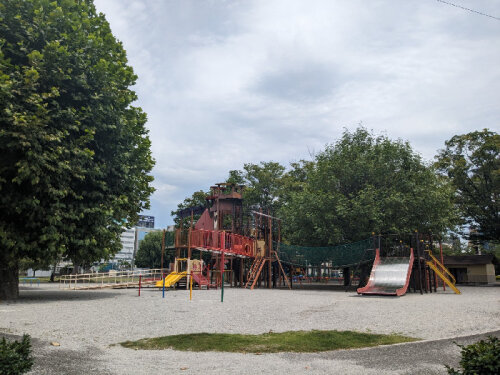Best International Trade Law Lawyers in Shizuoka
Share your needs with us, get contacted by law firms.
Free. Takes 2 min.
List of the best lawyers in Shizuoka, Japan
About International Trade Law in Shizuoka, Japan
International trade law in Shizuoka is governed primarily by national Japanese law and by international agreements to which Japan is a party. Shizuoka-prefecture businesses that import, export, ship through local ports, or engage in cross-border sales must comply with Japan's customs regulations, export control rules, tariff schedules, sanitary and phytosanitary requirements, product safety standards, tax rules, and relevant bilateral or multilateral trade agreements. Local practice also involves coordination with port authorities, customs branch offices, quarantine agencies, and local chambers of commerce. Because most formal legal frameworks are national, legal issues in Shizuoka are handled under Japanese statutes, administrative rules, and court decisions, but local offices and brokers play a practical role in day-to-day compliance and logistics.
Why You May Need a Lawyer
You may need a lawyer when international trade issues become complex, risky, or contentious. Common situations include:
- Regulatory compliance questions - for example, whether goods need an export license under the Foreign Exchange and Foreign Trade Act, or whether an import requires special quarantine or approval.
- Customs disputes and penalties - when Japan Customs assesses fines, detains or seizes goods, or issues adverse rulings on classification or valuation.
- Trade remedy actions - involvement in anti-dumping, countervailing duties, or safeguard investigations affecting products you import or export.
- Contract drafting and disputes - international sales, distribution, agency, shipping, and logistics contracts often require careful drafting to manage risk, choice-of-law, jurisdiction, and indemnity clauses.
- Sanctions and export controls - dealing with restricted parties, restricted technologies, dual-use items, or transactions with sanctioned jurisdictions.
- Intellectual property and product compliance - when imports or exports implicate patents, trademarks, design rights, product safety, or forced recalls.
- Administrative appeals and litigation - challenging administrative decisions by customs, METI, MAFF, or other regulators, or pursuing/defending claims in court or arbitration.
- Mergers, supply-chain restructuring, or cross-border investment - where trade law interacts with foreign direct investment rules, disclosure obligations, and transactional due diligence.
Local Laws Overview
Although many trade rules are national, the following legal regimes and practical local considerations are particularly relevant in Shizuoka:
- Foreign Exchange and Foreign Trade Act (FEFTA) - regulates exports and imports of controlled goods and technologies, requires licenses for certain transactions, and governs screening of transactions that affect security or public order.
- Customs Act and customs procedures - Japan Customs enforces import and export declarations, tariff classification (based on Harmonized System codes), valuation, duty assessment, and customs clearance. Local customs offices process shipments that pass through ports like Shimizu and other entry points in the prefecture.
- Tariff Schedule and preferential trade regimes - applicable customs duties are determined by Japan's tariff schedule; preferential tariffs under trade agreements such as CPTPP, the Japan-EU EPA, and RCEP can reduce duties when proper certificates of origin and compliance are provided.
- Export control and sanctions - METI administers export controls including controls on dual-use items, while Japan follows UN and national sanctions programs that may affect trade with certain countries, entities, or persons.
- Sanitary and phytosanitary regulation - the Ministry of Agriculture, Forestry and Fisheries (MAFF) and quarantine authorities regulate importation of food, plants, and animals; inspections and permits may be required at local ports.
- Product safety, pharmaceuticals, and chemicals - MHLW, the Pharmaceuticals and Medical Devices Agency, and chemical safety laws impose import controls, testing, and registration for regulated products.
- Contracts and commercial law - the Japanese Civil Code and commercial statutes govern sales contracts, agency, carriage of goods by sea or land, and commercial dispute resolution. Choice-of-law and jurisdiction clauses are enforceable but should be drafted carefully.
- Local administrative practice - port authorities, customs branches, and municipal agencies in Shizuoka provide on-the-ground procedures and documentation requirements. Using licensed customs brokers and local experts simplifies compliance and reduces delays.
Frequently Asked Questions
What documents do I need to import goods into Shizuoka?
Typical documents include a commercial invoice, packing list, bill of lading or airway bill, import declaration to Japan Customs, applicable certificates of origin for preferential duty treatment, import licenses or permits for controlled goods, and any sanitary or quarantine certificates required by MAFF. Specific documentation depends on the product type and origin.
Do I need a license to export technology or equipment from Shizuoka?
Possibly. Exports of dual-use items, advanced technologies, and certain equipment may require an export license under FEFTA administered by METI. Licensing requirements depend on the item, end-use, and end-user. When in doubt, consult an export control specialist or lawyer before shipping.
How are customs duties calculated in Japan?
Customs duties are based on the tariff classification of the goods using HS codes and on customs valuation rules that generally use transaction value. Preferential duty rates may apply under free trade agreements if you can prove origin. Import consumption tax and other taxes may also apply.
Can I appeal a customs decision that seizes or detains my shipment?
Yes. Japan Customs decisions can be administratively appealed, and there are statutory procedures for objection and litigation. Timelines are short, so prompt legal advice is important to preserve rights and to seek release or redress.
What are the penalties for non-compliance with export controls or customs rules?
Penalties range from administrative fines and seizure of goods to criminal sanctions for serious violations, including imprisonment. Civil liability may also arise from breaching contracts or injuring third parties. Penalties depend on the nature and severity of the non-compliance.
Do I need a customs broker in Shizuoka?
Using a licensed customs broker is common and often advisable. Brokers prepare and file customs declarations, advise on tariff classification, handle duty payments, and coordinate inspections. Brokers familiar with local ports and procedures can reduce delays and compliance risks.
How do trade agreements affect imports and exports in Shizuoka?
Preferential trade agreements can lower or eliminate customs duties when criteria are met, most commonly proof of origin. They may also streamline procedures and provide dispute-resolution mechanisms. Businesses should assess whether their goods qualify and prepare required certificates and documentation.
What should I include in international sales or distribution agreements to reduce risk?
Key clauses include clear description of goods and responsibilities, INCOTERMS or delivery terms, payment terms and security, warranty and liability limits, intellectual property protections, compliance with export controls and sanctions, choice-of-law and dispute resolution clauses, and termination rights. Local counsel can help adapt clauses to Japanese law and practice.
How are trade disputes commonly resolved in Japan?
Disputes are resolved through negotiation, mediation, arbitration, or litigation. Many international contracts specify arbitration - for example under JCAA rules - while domestic disputes may proceed in Japanese courts. Arbitration offers confidentiality and flexibility; litigation involves formal procedures and public records.
Where can I find legal assistance in Shizuoka for international trade issues?
Look for lawyers or law firms with experience in customs, export controls, international commercial law, and administrative appeals. Local bar associations, the Shizuoka Chamber of Commerce, and national trade organizations can suggest practitioners. Confirm experience with relevant regulators, ports, and languages required for your matter.
Additional Resources
Relevant government bodies and organizations to consult or contact for information include:
- Japan Customs - for customs procedures, tariff classification, and valuation guidance.
- Ministry of Economy, Trade and Industry - for export control and sanction rules.
- Ministry of Agriculture, Forestry and Fisheries - for quarantine and sanitary regulations on plant and animal products.
- Ministry of Health, Labour and Welfare - for regulated medical and consumer products.
- Japan External Trade Organization - for practical trade support and market information.
- Local authorities - Shizuoka Prefectural Government and the Shizuoka Chamber of Commerce and Industry for local business support and introductions to logistics providers.
- Licensed customs brokers and freight forwarders - for operational clearance and shipping advice.
- Japan Commercial Arbitration Association and local arbitration providers - for dispute resolution options.
- Japan Patent Office and intellectual property professionals - for IP protection and enforcement.
Next Steps
If you need legal assistance with international trade in Shizuoka, consider the following practical steps:
- Gather essential information - identify the goods, origin and destination, commercial contracts, invoices, and any communications with customs or regulators.
- Classify goods and check controls - determine HS codes, duty rates, and whether items are controlled under export control lists or sanitary rules.
- Engage local operational experts - hire a licensed customs broker and a freight forwarder experienced with your port of entry or exit in Shizuoka.
- Consult a specialized lawyer - look for counsel with experience in customs, export controls, trade remedies, and cross-border contracts; ask about their experience with local regulators and ports.
- Put compliance procedures in place - develop or update internal compliance policies for export controls, sanctions screening, record-keeping, and staff training.
- Prepare for disputes - include clear dispute-resolution and jurisdiction clauses in contracts, and consider arbitration clauses where appropriate.
- Act promptly if there is a problem - customs detentions, penalty notices, or sudden regulatory changes require quick action to minimize losses.
Note: This guide provides general information and is not a substitute for legal advice. For decisions affecting your business or personal legal rights, consult a qualified lawyer in Japan who is experienced in international trade matters and familiar with Shizuoka practice and procedures.
Lawzana helps you find the best lawyers and law firms in Shizuoka through a curated and pre-screened list of qualified legal professionals. Our platform offers rankings and detailed profiles of attorneys and law firms, allowing you to compare based on practice areas, including International Trade Law, experience, and client feedback.
Each profile includes a description of the firm's areas of practice, client reviews, team members and partners, year of establishment, spoken languages, office locations, contact information, social media presence, and any published articles or resources. Most firms on our platform speak English and are experienced in both local and international legal matters.
Get a quote from top-rated law firms in Shizuoka, Japan — quickly, securely, and without unnecessary hassle.
Disclaimer:
The information provided on this page is for general informational purposes only and does not constitute legal advice. While we strive to ensure the accuracy and relevance of the content, legal information may change over time, and interpretations of the law can vary. You should always consult with a qualified legal professional for advice specific to your situation.
We disclaim all liability for actions taken or not taken based on the content of this page. If you believe any information is incorrect or outdated, please contact us, and we will review and update it where appropriate.









